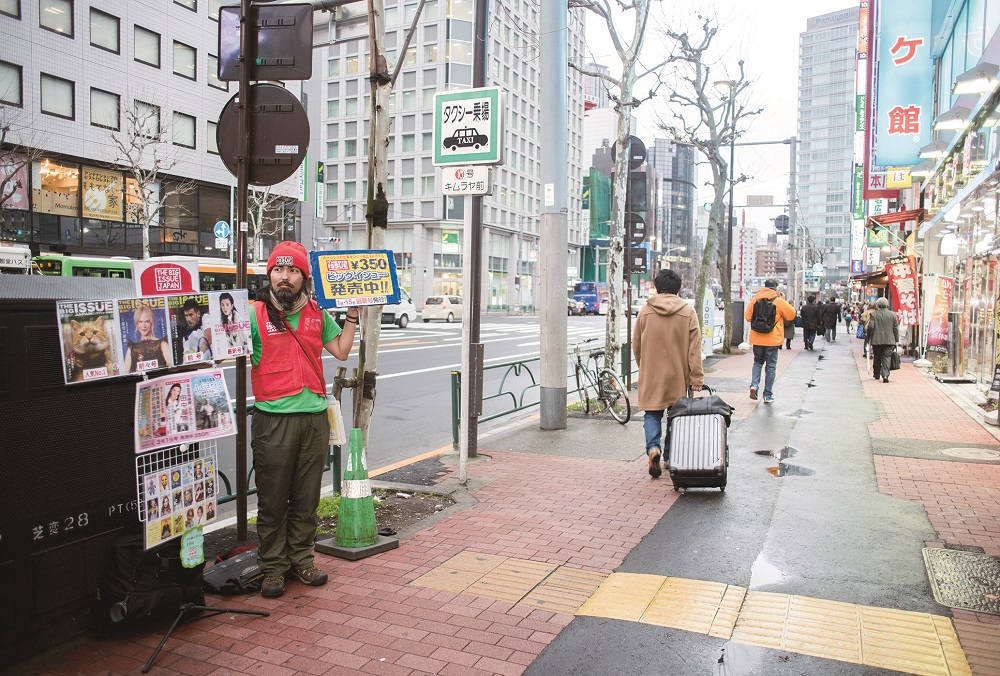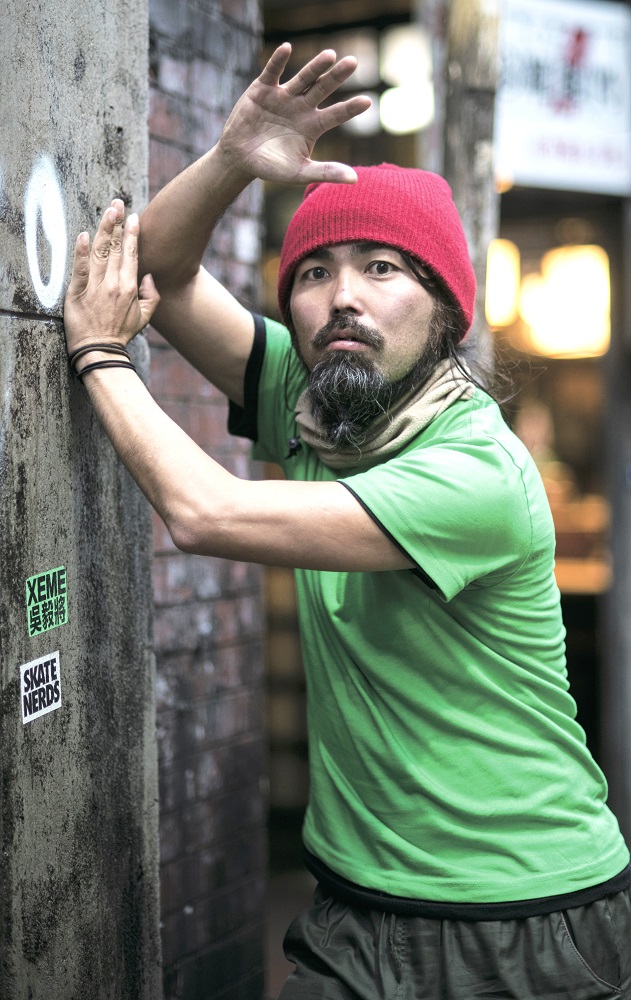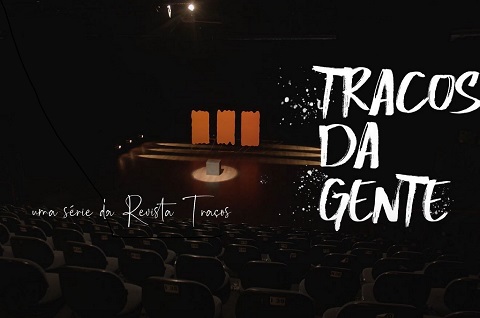By Mariko Kazuki, The Big Issue Japan
Tokuchika Nishi (39), who has a purposeful gaze and long hair that he has been growing out since his beloved cat passed away, became a Big Issue Japan vendor in July 2017. Monday through Friday, Mr. Nishi sells papers from 7.30 to 10.30am in front of the ‘Konaka The Flag’ store, near JR Shimbashi Station’s Ginza Exit and from 8 to 10pm in front of the bus terminal at JR Shinjuku Station’s South Exit.
“Shimbashi businessmen briskly buy the latest issue instead of a newspaper, whereas shoppers in Shinjuku often tell me ‘Keep up the good work!’ Everyone connected with The Big Issue is really kind, from staff to volunteers to customers. I used to be rather prickly, but they’ve mellowed me out,” Mr. Nishi says.
Mr. Nishi was born in Tokyo, but his family soon moved to Saga Prefecture in Kyushu. After his brother, three years Mr. Nishi’s elder, decided to pursue painting, Mr. Nishi shouldered the burden of his parents’ expectations. He attended the number one prep school in the prefecture and a national university.
“I didn’t want to follow the path laid out for me and become a civil servant after graduating; sometimes I dreamed about becoming a comedian or a keirin cyclist. In the end, I dropped out of university and joined the Japan Ground Self-Defense Force.”

Mr. Nishi was posted to Okinawa and worked like mad, but one day he was involved in a fight and was subsequently reassigned to a do-nothing position. “I cooled down and starting looking for a hobby outside of work. Around that time, a woman saw me dancing in a disco and invited me to come dance salsa. I met musicians through salsa, and I really enjoyed being part of their world. I began wondering if there was anything we could do together.”
After the 2011 Tohoku earthquake and tsunami, Mr. Nishi was dispatched to the devastated town of Minamisanriku, Miyagi Prefecture, to gather information and run a soup kitchen for victims. He became increasingly frustrated: “Even when the hardworking volunteers became exhausted, the Self-Defense Force couldn’t do anything to help them.”
On his 35th birthday, Mr. Nishi finally left the Self-Defense Force. Wanting his next job to be dance-related, Mr. Nishi took lessons from an instructor in Tokyo. However, he felt reluctant to earn a living by dancing specific forms that he felt constricted expression of movement, so he returned to Okinawa and began working as a contracted employee at an electronics retailer. “I took out a loan with the intention of opening a bar, but it never got off the ground. My father agreed to pay back the loan on the condition that it was the last thing he would do for me as a parent.”
Wanting to “throw it all away”, Mr. Nishi started living on the streets in Okinawa around two and a half years ago. A little while later, he visited an acquaintance in Tokyo but missed his return flight. Mr. Nishi was recruited to work as a day laborer for a construction company in Tokyo, but knee and back problems forced him to quit after about two months. This time, he became homeless in Tokyo.

“I lived like that for two years, and by then I didn’t care about anything. I just drank water and was resigned to dying a dog’s death, but after three weeks I suddenly couldn’t get to sleep anymore.”
Mr. Nishi then remembered having previously printed out the ‘Guide to Getting off the Streets’, which The Big Issue Japan published, at an internet cafe. “Using the Guide, I visited the Big Issue office, and they fed me two helpings of curry. I mentioned that dance was my hobby on the CV I wrote for them, and when the staff saw that they introduced me to the performance group Newcomer “H” Sokerissa [A performance and dance group made up of currently, and formerly, homeless individuals]. The next day, I went to see Sokerissa’s rehearsal after I finished my shift selling papers – and I found the world that I had been searching for.”
Mr. Nishi now attends rehearsals four or five times per month, and he never fails to participate in the group’s tours to various places. “When I’m dancing and when I’m working with volunteers is when I feel most alive. I was surprised to find there were so many things I could do only through living on the streets.
“I now have hope that one day I’ll be of some use to society. Once I figure out how, I want to liven up the town in Okinawa with all my old friends.”
Translated from Japanese by Annelise Giseburt




















